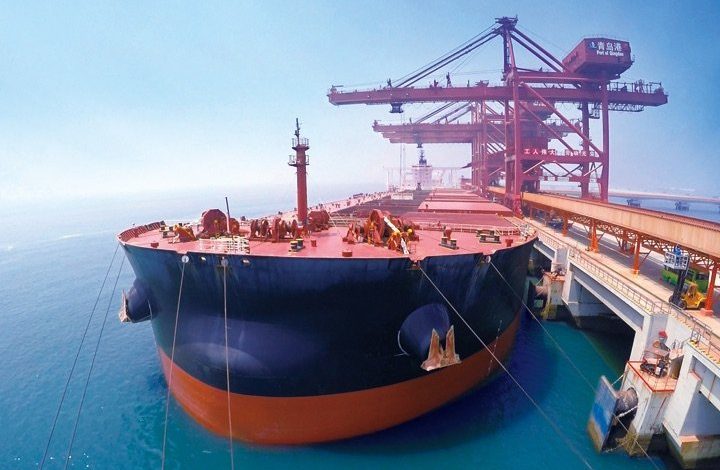Dry bulk taking a gamble by relying on China

AJ Rahman, founder and CEO of Norvic Shipping, explains why depending on the fortunes of one economic powerhouse is risky.
When China sneezes, the world catches a cold is a common phrase for explaining the Asian nation’s impact on the global economy. And it’s one that sums up how China’s economic performance directly affects dry bulk ship owners and operators around the world.
Operators have spent recent months poised for a Chinese economic recovery driven by improved customer sentiment following several Covid lockdowns throughout 2022 and early 2023.
With China opening up, optimists expected the nation’s economy to rebound, helping address the real estate crisis and boosting bulk demand. It appears their optimism was well placed, with the National Bureau of Statistics revealing in April 2023 that China’s economy grew at a rate of 4.5% during Q1 2023 compared to the same period a year earlier. Further signs of recovery came from retail sales and industrial production, which increased by 10.6% and 3.9% respectively in March.
What does this mean for dry bulk operators? China’s reopening will likely see increases in steel demand and iron ore imports, sparking more need for shipping companies that carry this type of dry cargo. Higher demand for coal imports, up nearly 40% year-on-year in Q1 2023 due to the rise in electricity generation in China and rising steel production, also bodes well for the dry bulk market.
The impact of China’s economic performance on the global dry cargo industry is unquestionable, but relying on the strength of one nation can be risky – especially when unforeseen forces come into play. China is on the road to recovery, but another Covid outbreak could lead to more lockdowns that adversely affect the nation’s economic growth. That would impact demand and have a ripple effect on bulk trade as well as wider business sectors.
From Norvic Shipping’s perspective, we believe operators that are asset light, based on a business model where they charter and operate vessels rather than own them, have more flexibility to adjust to market conditions. This is particularly important in the dry bulk industry where volatility reins. Instability is driven by industry developments and unforeseen events related to geopolitics, GDP growth or contraction, trade, supply and demand and weather patterns.
Aside from monitoring China’s economy, dry bulk operators alongside the rest of the maritime industry are staying closely in tune with other market forces – most notably the drive to decarbonise. As we know, this is probably the biggest maritime challenge of our time. From Norvic’s vantage point of working with a wide network of vessel fleets, we can already see the different approaches that are being taken. While there’s no clear front runner in the alternative fuels race, one of the most logical steps for bulk carriers will be to implement technologies such as wind propulsion or voyage optimisation to drive fuel efficiencies.
However, the market has seen an increase in demand for newbuild LNG-fuelled carriers. Some shipping companies in our segment are ordering vessels powered by this cleaner alternative fuel to support the International Maritime Organization’s decarbonisation goals. But whether their investment pays off remains to be seen.
The lack of LNG bunkers around the world creates challenges for bulk operators. Unlike the set routes of container ships, bulk routes are unpredictable, which makes relying on LNG bunkers to refuel a gamble. The same could be said for other green energy such as methanol or ammonia that, like LNG, are restricted by the limited infrastructure required for refuelling around the globe.
Which alternative fuel dry bulk operators should choose is one of several environmental decisions facing our segment. At Norvic, we believe the maritime industry has a powerful role to play in decarbonising global supply chains to leave the world better than we found it. Working with our network of vessel owners, it’s our view that cargo owners need to have personalised options about how they can meet their decarbonisation ambitions and select the right vessels to fit their bill.
The bulk market is facing tough challenges in the short term, but within this cyclical industry, it’s important to hold our nerve, run tight operations and plan for the future. Decarbonising the maritime industry is inevitably an ongoing and longer-term issue and achieving it requires support and input from dry bulk operators that are committed to innovating. Adopting new ways of working to navigate the transition is a springboard for improving how we do business and it’s achievable if we stay collaborative, flexible and accountable.
